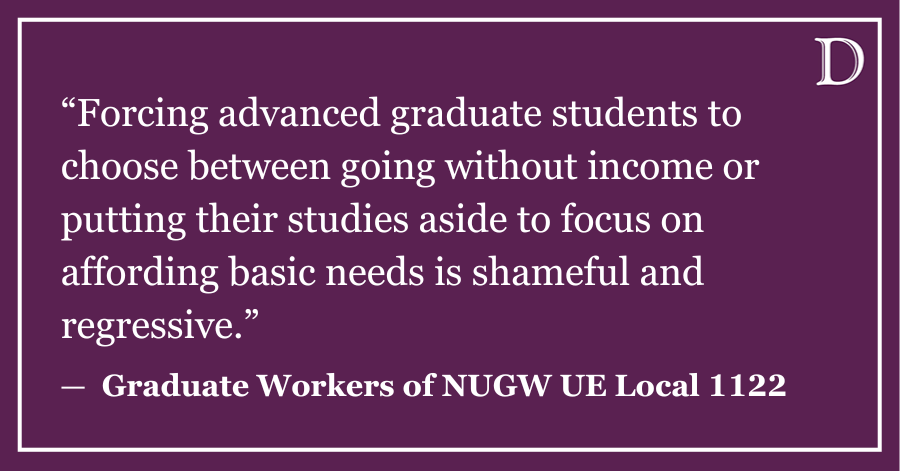As we begin a new year at Northwestern, we are looking at a new set of regulations that govern protest. Like at other universities, last spring raised some level of national trauma — but unlike many others, we have an administration that carefully balanced safety, free speech and respect. We were both condemned and admired for that, and our University President Michael Schill performed — in my opinion — admirably before a hostile Congressional committee.
But it’s a new year, and with it comes new rules that may serve to silence, not protect students.
As an alum (Weinberg ’72) and an emeritus faculty member, I have been engaged in deep argument, primarily with myself, over these new policies. At first glance, given my days as an undergraduate, I would have been expelled for my activities protesting the Vietnam War and racism. Today, I believe in robust free speech, academic freedom and the urgency of protest given the state of both the United States and the world today. In other words, I support public protest both on and off college campuses for the many issues of today — the murder of Black Americans, gun control, Ukraine, the threat to civil rights or peace in the Middle East. I also believe the role of the University is to educate first and foremost. Part of that education is to think critically. If the liberal arts teach us anything, it is to think widely and deeply about the contradictions in the real world.
At first glance, the regulations appear reasonable. Protests are allowed so long as classes are not disrupted, with demonstrations only occurring during specified hours without bullhorns or other forms of amplification or light shows. People are not to be intimidated or prohibited from participation in a University activity; banners are only allowed in properly identified spaces; buildings and pathways may not be blocked and respect is to be maintained within the University community. For the record, the until-3 p.m. weekday protest ban at The Rock makes little sense, as many classes end at 3:30 or even 5 p.m. Which policies apply to Deering Meadow?
But these are issues of form, not content. Where and when are the real issues. I assume content would refer to the official Student Code of Conduct, Faculty Handbook and Staff Handbook, which govern the University community. Schill, a believer in free speech, has not ordained new limitations to speech beyond the basic ones for which we owe him and the administration our thanks.
However, I do see a problem with all this: The array of time, manner and content restrictions will likely serve to intimidate all but the most committed activists. Our very smart students may well find some “workarounds” that push the boundaries. This might require further rewriting of the rules, before invoking disciplinary committee hearings. Conflict over form of speech may replace the debate over content, or worse, obscure or eliminate debates over the issues themselves. This would be a tragedy.
Demonstrations are a form of democracy, despite the obvious risks they contain. We do not want an unsafe campus or one in which only some views are tolerated. Our community must publicly debate and understand there is a difference between being offended and being threatened. To achieve this, we must have clear guidelines protecting free speech in both form and content.
Is a banner advertising a Greek tragedy to be allowed along a pathway? Is that a formally acceptable premise? What if it is Aristophanes’ “Lysistrata?” Is that political speech or not? What if it is sponsored by the theatre department? Or sponsored by a peace organization? When is a “demonstration” a “demonstration” rather than an art exhibit, concert or play? If Hillel or Jewish Voice for Peace put on a concert arguing for one or another view of Gaza, where would the line be? To me, these issues are not as clear as the new guidelines would suggest.
Let me suggest that the new guidelines are “a start.” I hesitate to say they are a good start or a bad start. One question lies with whom and how were they arrived — were students consulted? I am not arguing against guidelines as a whole but am worried many of our students will be intimidated into silence by these rules. While the University is trying to protect students from intimidation or other obstacles, we must also strive to protect students from intimidation by the “legitimate” authority, the administration.
Jeff Rice (WCAS ’72) is a senior lecturer in political science and African Studies. He can be contacted at [email protected]. If you would like to respond publicly to this op-ed, send a Letter to the Editor to [email protected]. The views expressed in this piece do not necessarily reflect the views of all staff members of The Daily Northwestern.



